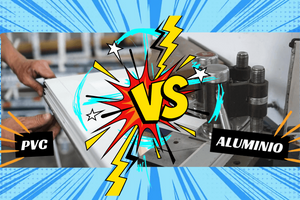When it comes to choosing the right window profile for your PVC windows, it's important to consider the thickness of the profile. Most PVC profiles have a thickness ranging from 60 to 80 mm, and the thicker the profile, the better its thermal and acoustic insulation capabilities. The choice of profile also influences the thermal and acoustic insulation properties of your PVC windows.
Generally, profiles with greater thickness and more air chambers tend to offer better insulation properties, resulting in increased home comfort and reduced energy bills. Regarding the VEKA Softline 70 and VEKA Softline 82 profiles, both offer good thermal and acoustic insulation properties, but the VEKA Softline 82 is of higher quality, providing even better insulation than the Softline 70.
Moreover, the Softline 82 is more robust and durable than the Softline 70, resulting in a longer lifespan for your PVC windows. On the other hand, if you're seeking maximum energy efficiency and long-term performance, you might want to consider thicker PVC profiles, such as those with 88 or 92 mm thickness. These profiles offer even higher insulation than the 70 or 82 mm profiles, allowing you to save more on your energy bills and enjoy greater home comfort.
This comparative table displays the features and properties of the VEKA Softline 70 and VEKA Softline 82 profiles for PVC windows. Both profiles offer different advantages and disadvantages, so it's important to consider your needs and budget when choosing the right profile for your PVC windows.

In summary, when selecting the appropriate window profile for your PVC windows, it's crucial to consider the profile's thickness and its thermal and acoustic insulation properties. If you're looking for a good balance between quality and cost, the VEKA Softline 70 might be a suitable option, while if you seek maximum energy efficiency and long-term performance, the VEKA Softline 82 could be the best choice for you.









